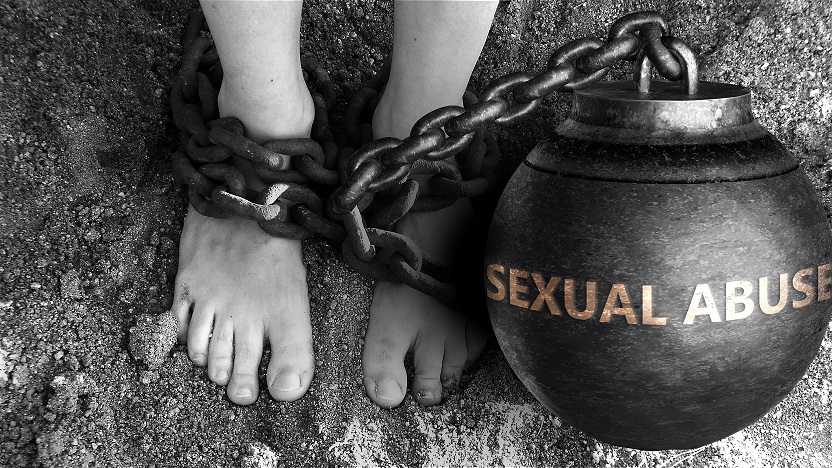In the United States, 1 out of 6 women and 1 out of 33 men will be the victim of a rape attempt. Additionally, according to RAINN, government authorities respond to a report of child sexual abuse every 8 minutes. While these numbers are alarmingly high, these are only the documented cases of sexual assault in America. Sadly, many cases will go undocumented due to the fear, guilt, and shame that victims experience.
When someone experiences sexual trauma, there are lasting effects that can cause severe psychological damage. Many survivors will resort to self-medicating in order to cope with their emotions, feelings, and even flashbacks. While this may temporarily numb their emotions, it can cause additional issues in the future. Unfortunately, using drugs or alcohol over an extended period of time can lead to dependence or addiction to the substance.
Forms of Sexual Assault
Many survivors of sexual assault experience denial or are unsure whether or not they have been sexually assaulted. Determining whether a sexual encounter was an assault comes down to consent. Consent is a voluntary, sober, and honest verbal agreement between partners. Furthermore, asking for consent is vital in order to prevent instances of sexual assault.
There are many different forms of sexual assault, including the following:
- Rape – sexual intercourse against a person’s will
- Drug or alcohol facilitated sexual assault
- Forcible sodomy – anal or oral sex against a person’s will
- Forcible object penetration
- Marital rape
- Unwanted sexual touching
- Sexual contact with minors, consensual or not
- Incest
- Any unwanted or coerced sexual contact
Other sexual crimes:
- Sexual harassment
- Solicitation of minors through the internet
- Possession of child pornography
Lasting Effects of Sexual Assault
Every person reacts differently to sexual trauma, but there are common reactions and effects that can be experienced by any individual. Additionally, it is important to remember that there is no right or wrong way to feel after a sexual assault. As the mind and body begin to process the reality of a sexual assault, an array of emotions, behaviors, and physical responses will begin to occur. Without proper treatment and therapy, sexual assault can leave an array of long-term psychological, physical, and social effects.
Long-term effects of sexual assault:
- Anxiety, panic attacks, and persistent fear
- Poor health
- Sense of helplessness
- Mood swings
- Depression
- Nightmares and flashbacks
- Dissociation
- Relationship difficulties
- Fear of sex or hypersexuality
- Isolation
- Paranoia
- Suicidal ideation
Guilt, Shame, and Denial
Commonly, survivors will experience feelings of guilt and shame. Sometimes people will feel as though the abuse was their fault. Placing the blame on themselves is an unhealthy coping mechanism that allows a survivor to feel as if they were not helpless. Additionally, survivors may feel as if they are dirty or undesirable because of what happened to them.
Sometimes survivors of sexual assault will completely deny the fact that they were assaulted. While this can be counterproductive, it allows survivors to avoid their pain for a period of time. Additionally, some survivors subconsciously block out the entire event, as if it never even happened. This is not intentional and is a form of amnesia that can occur after a traumatic event. Similarly, minimizing the assault is common as well. Survivors often compare their assault to other people’s experiences, making themselves believe that what they went through wasn’t “that bad”.
Isolation After a Sexual Assault
Isolation is a huge issue for adult survivors. Survivors isolate for a number of reasons, including trust issues and fear of being unsafe. When someone is sexually assaulted, their trust has been broken and so has their sense of safety. This can cause them to mistrust everyone in their lives, feel as if leaving their home is not safe, and ultimately lead to isolation. As a result, survivors may turn to drugs or alcohol to mask the feelings of loneliness and despair.
Linking Sexual Abuse to Addiction
Experiencing sexual abuse at any age can lead to problematic coping mechanisms such as substance abuse. Childhood sexual trauma, in particular, has been proved to be a leading factor behind the development of a substance use disorder. Research has shown that adults who were sexually abused as children are 1.5 times more likely to use illicit substances when compared to adults who were not abused as children. Studies have shown that sexual abuse survivors may be at an increased risk of substance abuse.
Research has shown that sexual assault survivors may use drugs or alcohol to:
- Escape from or cope with traumatic memories and experiences
- Cope with isolation or loneliness
- Numb feelings of guilt or shame
- Harming or punishing themselves for the sexual abuse
- Cope with mental health issues like anxiety, depression, or PTSD
Dealing with the effects of sexual abuse on your own can be dangerous. For example, many survivors become isolated, suicidal, or develop unhealthy coping mechanisms. As a result, it is extremely common for these individuals to turn to drugs and alcohol as a means of numbing their pain. However, people suffering from addiction stemming from sexual trauma can recover through trauma-informed treatment.
Recovering from Sexual Assault and Addiction
Recovering from anything takes time, support, and personal effort. Luckily, addiction treatment centers like Ohio Arc offer individualized treatment plans. To expand, this means every patient will have a plan of action specifically tailored to their needs. Above all, this is especially important for individuals who have suffered trauma or have a co-occurring disorder. Often times, the underlying causes of addiction are overlooked.
With the combination of trauma-informed therapy, group therapy, and addiction treatment – recovery is possible! Dealing with addiction and the aftermath of sexual assault is extremely difficult. Allowing professionals to help you recover is vital for long-term happiness and success. Call us today!







